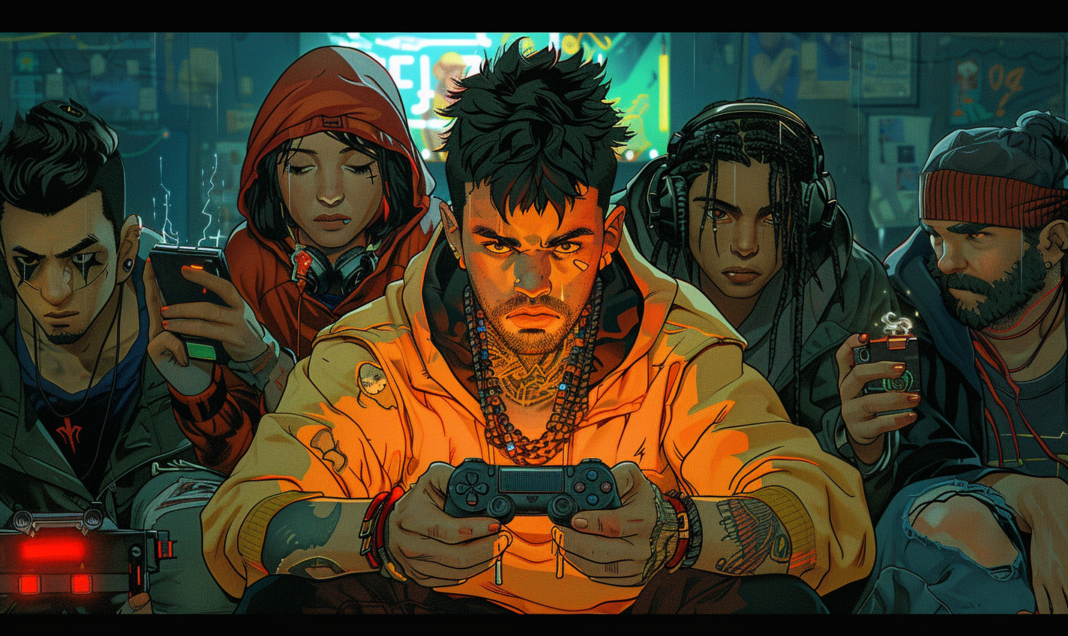Netflix just gave the axe to its Southern California AAA game studio, Team Blue, before it ever released a single game. In a move that reeks of “too big to fail” vibes, Netflix poured money into top-tier gaming talent—veterans from Overwatch, Halo, and God of War—only to shutter the studio a mere two years after opening it. You can practically hear the collective groan of every exec who thought Netflix could just waltz into the high-stakes world of AAA gaming without breaking a sweat.
Here’s the breakdown: Team Blue was supposed to be Netflix’s golden ticket into the multi-billion-dollar gaming industry, a place where $100 million gets you a shiny blockbuster game—and that’s just for starters. Netflix went all in on the promise of a “multi-device” gaming future. Think games on your PC, PlayStation, and Nintendo Switch, all under the Netflix banner. But it seems that ambition met reality like a brick wall. Instead of getting a piece of the billion-dollar gaming pie, Netflix found itself caught in the kitchen with no recipe.
Let’s talk about the talent exodus. First, they brought in Chacko Sonny, the former executive producer of Overwatch—a guy who knows his way around a gaming hit. Then, they lured Joseph Staten, a major player from the Halo franchise, and Rafael Grassetti, an art director from God of War. This was the dream team. But instead of creating the next great gaming IP, the only thing that materialized was an exodus. None of these industry big shots are sticking around, and with their departure, so goes Netflix’s dream of a blockbuster AAA game.
Now, Netflix isn’t new to gaming. Since 2021, the streamer has been dabbling in mobile games, some of which have gained traction—Oxenfree II and ports of iconic games like Grand Theft Auto to name a few. They even acquired developers like Night School Studio and Spry Fox to beef up their pipeline. But jumping from casual mobile games to AAA is like moving from LEGO bricks to skyscrapers overnight—probably not the smartest leap. And yet, here they were, betting on a “big-budget, multi-device strategy,” despite having no gaming street cred to stand on.
Co-CEO Greg Peters called investing in games “planting seeds” on a recent earnings call. Seeds? Maybe more like planting landmines. The sheer cost of creating AAA games is staggering, and let’s not forget about the market competition. Every gaming company from Amazon to Google has tried and failed to get in the game. Google’s Stadia? Yeah, let’s pour one out for that disaster. But here was Netflix, rolling the dice anyway.
Peters also threw out a few crumbs about upcoming titles based on Netflix’s pre-existing IPs, saying, “We’ve got a Squid Game coming. We’ve got a Virgin River Christmas.” Yes, you heard that right, a Virgin River game. If the thought of playing a Christmas-themed game about small-town melodrama excites you, congratulations—you are Netflix’s target audience. Meanwhile, Ted Sarandos, Netflix’s other co-CEO, boasted about the “steady drumbeat” of games, alongside new TV shows and films. But let’s be real: mobile games based on Netflix series aren’t going to turn Netflix into the next Ubisoft or EA anytime soon.
So, where does this leave Netflix? After burning through cash and pulling the plug on Team Blue, it looks like the streamer is going back to its roots. Mobile games are still on the menu, and the company recently picked up Cozy Grove developer Spry Fox. But it’s safe to say their dreams of conquering the AAA space are on ice for the foreseeable future. Sure, there’s still talk of games based on Netflix IPs, but the grand vision of a cross-platform gaming empire? That’s looking like a classic Hollywood bust.
Netflix might want to take a page from Google’s playbook—sometimes, it’s better to stay in your lane than crash and burn in someone else’s. For now, we’ll have to settle for Squid Game spin-offs and whatever the Virgin River Christmas game turns out to be. Stay tuned, but don’t hold your breath for the next Halo coming from Netflix anytime soon.




